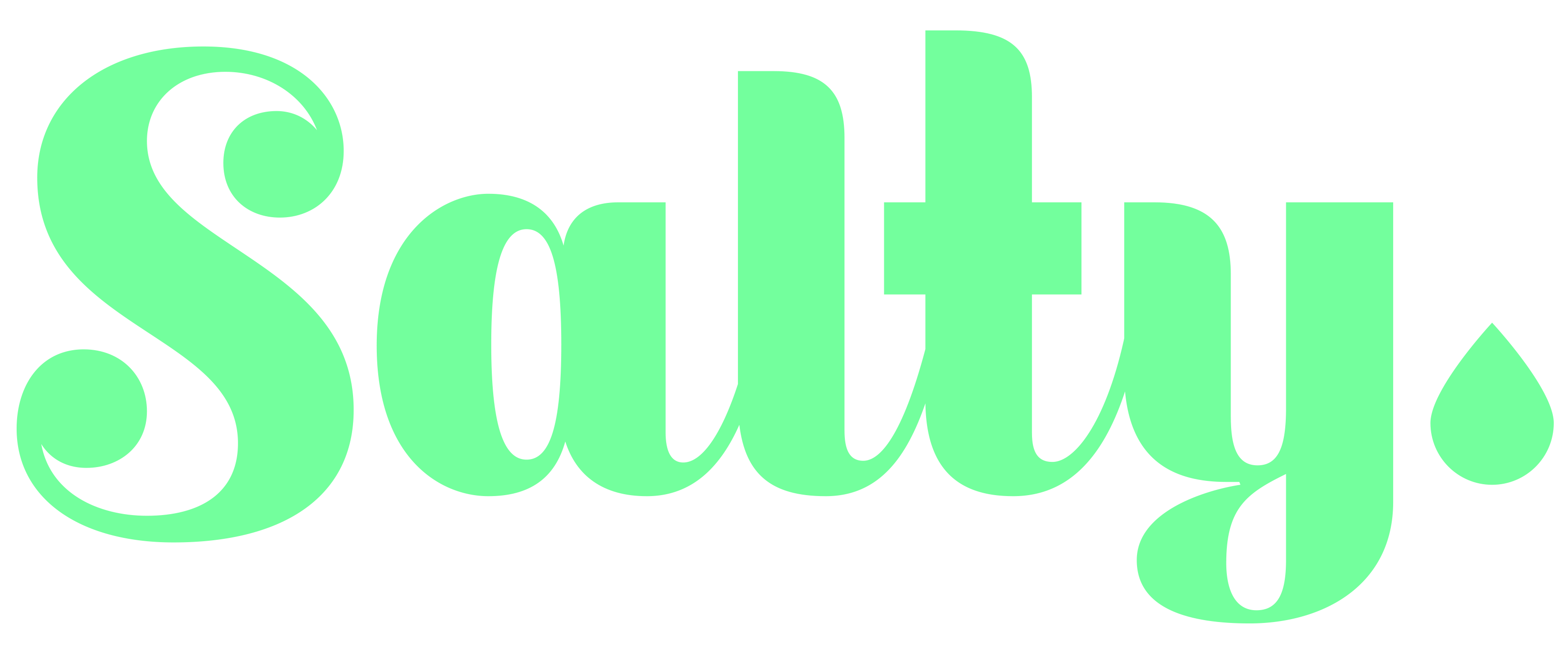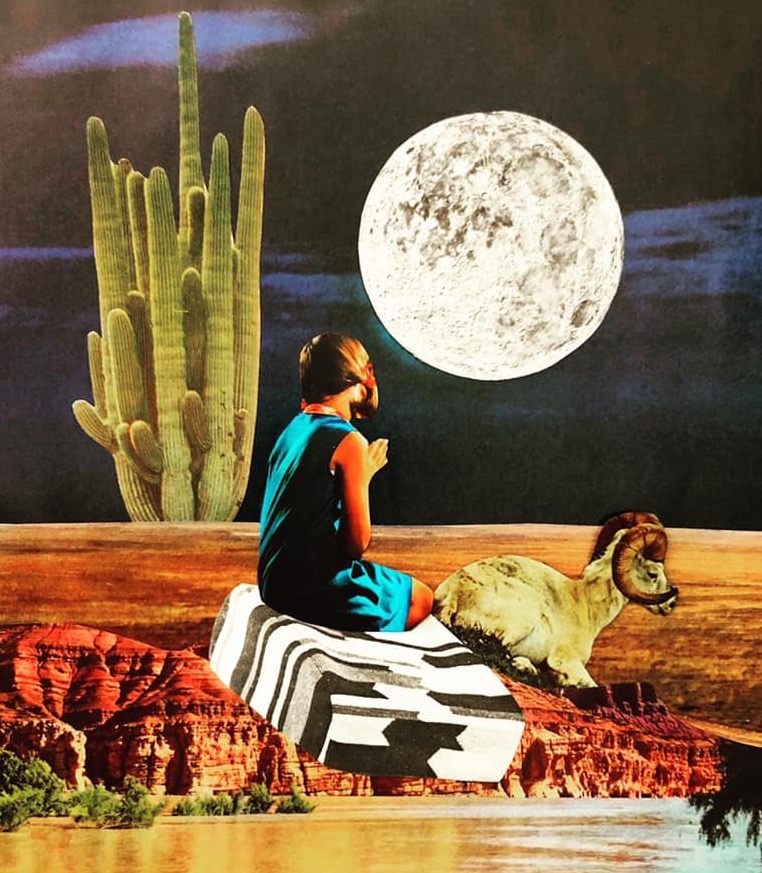By Mariah the Mystic
Art by Kristin Kastien
As a practicing freelance astrologer and a long-term employee within the astrology community, conversations about my career with new people tend to follow three main presets. The first: I sense that mentioning my job and interests will garner disdain, if not outright disrespect, so I say I work in marketing and enjoy creative hobbies on the side. The second: I end up spending way too long defending my practice to someone who doesn’t even know what a midheaven is. And lastly: someone responds positively and likely wants to show me their birth chart for an impromptu reading (which I do love) — although then I am promptly faced with an infamous Co–Star chart. IYKYK.
On the wings of the viral, endlessly recycled NYT article about the zodiac being “out of date” — and, of course, the Ophiuchus discourse (good luck pronouncing that) — I can’t bite my tongue any longer. These arguments get dressed up in different outfits, but the truth is the same: it is an excuse to yuck on someone’s yum.
There are two prongs for why this tired re-run is so off-putting. The first: it’s simply incorrect. The second: it reveals something deeper and more pernicious, the fact that we constantly turn a blind eye to people who make hating things their personality.
While disliking something can be passive, hating is an actionable item, a personality trait even.
The first is easier to address. Traditional and modern Western astrology are based on the Tropical Zodiac. This has nothing to do with astronomical constellations (though they share the namesake) or the slow shift of the Sun. The Tropical Zodiac is tied to Earth’s ecliptic journey and the seasons, divided into twelve equal slices, which form the zodiac signs. I laughed when I saw the Times chose to interview and quote a historian instead of a practicing astrologer. That’s like asking a medical historian about bloodletting and then deciding we should bring it back, rather than consulting a doctor who can explain why it’s no longer used.
The second prong: the fact that so much social vitriol, even the veiled or passive kind, stems from cultural attitudes and prejudice. Disliking things is a universal preference meter, hating things is a committed hobby. Even when you dislike a cuisine, or a genre of music, a decent human would tolerate it as an act of respect within certain contexts. Hating requires something more ominous, a deeper wound, one that lashes out. Hating is joining a snark reddit, writing an ugly response to a prompt on a dating app, or obsessing so hard about something everyone starts to be like, “are you good bro”? While disliking something can be passive, hating is an actionable item, a personality trait even?
Even tone-deaf jokes and micro-aggressions are the subtler cousins of these same intolerances. Upon closer examination, these seemingly off-the-cuff comments can reveal something more deeply ingrained that needs to be addressed. People love to hate anything that appears to be ‘basic’.
As if you hate something loudly enough, it gives the impression of you being really smart, cool, and knowledgeable. I fear it never does that, dear.
I find it to be far more interesting, mysterious, and complex to be a living contradiction, a human that can’t be easily defined or grouped. It is sexy and refreshing to watch someone obliterate your preconceptions of them without shame, without fear, and without a care for the consensus.
Who uses astrology apps and software the most? Women, queer folks, people of color.
Astrology experienced a significant cultural surge in the late 2010s, and this trend was further amplified by Co—star, its seemingly bottomless marketing budget, and The Pattern, an entry into astrology that eschews the woo. Before that, the average person may have known their Sun Sign and their Chinese Zodiac animal. Back when horoscopes were still cheeky little blurbs in magazines, a mysteriously conjured relic meant to entertain the reader for a moment before being forgotten. Astrologers were lumped in with esoterica at large, pseudoscience, holistic wellness, and New Age aesthetics, sometimes reduced through cultural appropriation and polished into marketable garbage.
But astrology is not a fad. It is one of the oldest spiritual and scientific practices in history. It emerged throughout Europe, Asia, Africa, the Americas, and beyond. Pieces of the puzzle exist in every corner of the planet. Each of these cultures developed its own system, calendar, and sky-driven rituals. Just as nature was a force of magic to these humans, the stars were unreachable gods — ushering in seasons, guiding the tides, aligning eclipses with carefully placed monuments. People turned to these cycles for protection, for trust in the harvest, for the dream that something divine had a hand in it all.
This tradition existed before and alongside Catholicism, Judaism, Islam, and most other religions still practiced today. While astrology can be heavenly for some, it is also deeply grounded in science and mathematics, which differentiates it monumentally, forged by philosophers, astronomers, and mathematicians alike.
But astrology is not a fad. It is one of the oldest spiritual and scientific practices in history.
Astrology is not owned by one culture. It’s not born of patriarchy or hierarchy. It cannot be fully controlled by one company, by the economy, or by the governing body. It’s not dictated by the gender binary — while planets may be thematically assigned masculine or feminine qualities, they are not one or the other. Astrology is not owned by one Astrologer. You can specialize, expand, and innovate, but the foundation does not budge. No matter what, the Sun will return each year to your natal degree. Mercury will retrograde. Eclipses will arrive. None of this is divine downloads from self-proclaimed prophets — it is observable, calculable, and collective heritage that we each own a part of.
To practice, you study and decipher. Mostly, you witness and observe over the passing of time. Taking part in this ritual and assuming the title doesn’t require you to be a man, meet the beauty standards, or pay a tuition. All you need is access to a textbook, a birth chart generator, or an astrological ephemeris. Before software, astrologers hand-drew natal charts this way for centuries.
For those afraid of anything they can’t neatly fact-check or understand with AI, astrology is exhausting. That’s why we are subjected, or punished I should say, by “Mercury in Gatorade” memes. Inundated with dating app matches that think it’s illuminating to write, “don’t match with me if you’re an astrology girl.” Though people often mean no malice when posting or reposting these overdone turns of phrase, they do signal a quiet degradation or condescension. I would never do that, that is embarrassing to me (obviously a cool person).
Astrology is not owned by one culture. It’s not born of patriarchy or hierarchy. It cannot be fully controlled by one company, by the economy, or by the governing body.
The subtext is fear, a fear of what they can’t own and control: of what exists beyond capitalism, beyond Western whiteness, beyond them and their limited experience.
Astrology is free, accessible, joyful — and that leaves people uncomfortable. In some way, I feel myself sympathizing right now. We have become so isolated from any free and open spaces and communities to exist in, without a vertical operating body or regiment of rules, that people have become wary of it.
I do agree that astrology can get diluted by stereotypes, sun sign-heavy meme culture, and Venture Capitalist backed apps that lack expertise from professional astrologers. But fun for fun’s sake isn’t inherently bad. Hobbies can be delightful, connective, and silly. Capitalism has rotted our brain into thinking that we need to curate and commodify our lives top to bottom.
Astrology creates community. Humans flock to these pages, creating pockets of therapeutic joy, vulnerable community, and an understanding of self. Astrology helps us relate to each other and break through emotional barriers. It allows us to understand that free will and fate can be intertwined in the present moment. That we can like things that cannot be fully explained or conceptualized into bite size pieces.
Astrology is a wild braid of math, mythology, symbolic language, ancient spiritual arts, and psychological recognition. To me, that’s hardcore. Way cooler than plagiarizing last year’s Ophiuchus thinkpiece. But what do I know? Just another astrology girl/them.
Alas, I’m not here to convert anyone. You don’t need to “believe” in astrology. But you do need to respect people’s interests — the same way you (hopefully) respect their most streamed artist on spotify, their love for pineapple on pizza, or their collection of magic the gathering cards.
Basically, we should stop being assholes. Especially when people open up to us and share an intimate piece of them, their harmless joys and hobbies, their likes and interests. People need to realize when they’re making being a hater a personality trait, and we should feel warranted in calling them out for it.
Let’s honor the tradition by treating this technique with some courtesy, if not curiosity. Next time someone guffaws at you, maybe give them a little laugh and say ‘Are we talking about the same thing? Maybe check out some Ptolemy or Firmicus next time you go to the library.’
Astrology is a primordial and ongoing conversation, one where there is never an entry fee or judgmental bouncer who looks at your choice of footwear. This club invitation never expires.
I invite you to take a moment this week and learn something outside of your scope about astrology. Perhaps peek into your whole birth chart for the first time, google search tropical zodiac, or follow an astrologer on social media. If Astrology is not your cup of tea, fine, but at least don’t make the ‘Astrology Girl’ at the party listen to your rant for 5 minutes until they are rescued by a friend.
*Astrology today is most embraced by communities outside the mainstream of power: 54% of LGBTQ+ adults consult astrology yearly, nearly double the general population (28%)—with LGBTQ+ women leading at 63% (Pew Research Center, May 2025/ Them Magazine, May 2025). Among women overall, about 40% of those aged 18–49 believe in astrology, and younger generations drive the surge: Gen Z and younger millennials account for 60% of astrology app users, with Co–Star alone downloaded by 25% of U.S. women aged 18–25(AP News, May 2025/ JP Loft Blog, 2025 / Axios April, 2021/ Wikipedia- Co—Star entry, 2025).
About the Author
Mariah the Mystic (they/she) is a multi-hyphenate creative in New York City. Part illustrator, part creative director, part writer, part weirdo, part Hag. By day, they fuse visual and literal storytelling with the social ethers, feeding the hungry content machine. By night, Mariah directs freelance projects, types furiously on their Sacred Sleaze Substack, sketches fantastical fashion collections on her croquis, writes (like this), and astrologizes for the masses! Follow them here: www.instagram.com/mariahthemystic

